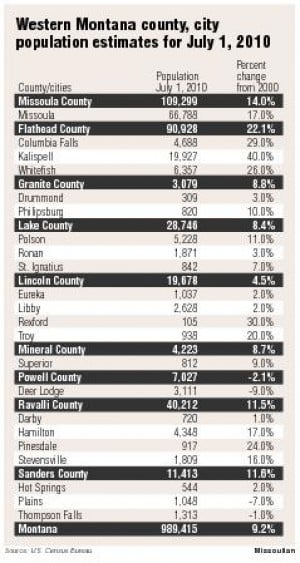In Part I of a philosophical examination of how schools
choose an ‘ideal’ student I questioned the usefulness of holding up an impossible
Platonic model for students to compare themselves to.
Plato was around for 2000 years before the US came into
being. But the latecomers to the world of thinking came up with something I
would encourage schools, students and just about everyone else to think about. C.S. Pierce and William James, a little over a
century ago, founded a school of philosophy called Pragmatism. They dismissed
the Platonic ideal as an unsuccessful and at times harmful way to measure the
world. Instead of playing with Plato, they dismissed his Ideal and posited a
new approach: is something, even something imperfect, as all things in the
world must must be, useful to a task or thought? If so, then it does not matter
whether it is even ‘true’ let alone an ‘Ideal'.
Why this mini-lesson in philosophy? Admissions officers are,
or at least should be, pragmatists rather than Platonists. Most admission deans
do not bother to look for the impossible—the ideal student—since he or she does
not exist. Instead they ask: Is this particular student useful to our
institutional needs? This questions
leads to decisions and thinking at odds with those who search for an ideal.
Let’s start with the basics. Admission officers work for a
particular school and the school has concrete needs. What these various and at
the same time specific needs consist of will largely determine the kinds of
students they accept. The needs vary
from school to school, but here are a few that almost all selective schools pay
attention to:
Richard Rorty
Pointy
Is a student smart? Smart is not easily defined but in
college admission it still gets quantified. As student taking challenging
course, earning top grades and doing well on a range of tests (SAT or ACT or AP
or IB or A level etc.), with strong teacher recommendations and strong support
from a school counselor ends up in the smart pile. Those having the top scores,
programs and performance are often accepted to selective schools largely based
on academic potential.
But there are different ways of demonstrating intellectual
promise and the old standby cliché ‘academic passion’. A student who has done
exceptionally well in the sciences, has performed research and taken part in
science competitions and received recognition often is not a great athlete will
stand a great chance of getting into top schools which offer engineering or
research based science. Almost all Intel semifinalists end up with great places
to go whether or not they’ve done all that much except prepare for this
competition.
Sometimes this
happens but it is rare. But admission officers are, as I have said, pragmatic.
They look at what strengths a student brings and evaluate them. If the school
wants great future scientists, then they may accept a student who has never
participated in a sport or never done all that much outside of his or her
passion. The common terms for this kind
of student is pointy, not as in the pointy-headed intellectual as pointy
describes other kinds of students too.
Instead, they create a class of student with different
talents, backgrounds, and worldviews. A student who is remarkably gifted as a
writer will be not be expected to be a science whizz kid too. But this writer
must compete against all the other students who have been identified as great
writers and must be near the top of the stack.
In other words, an applicant pool does not exist as an
aggregate to an admission office. This highly selective admission process
should be, at least in some ways, reassuring to students. One never competes
against the whole applicant pool. Rather one competes in the group one is
placed in.
Specials
On the other hand, some groups are much better to be in than
others. Legacies, under-represented students, all, to a lesser degree students
who demonstrate ‘grit tend to get a significant boost in the admission
process—just look at the acceptance rates for these groups for proof.
For example, a student who is a reasonably good student, but
who has the talent to bring home a championship in a sport the school loves,
will then go to the top of the pile of that subset of students.
Unspecials
Membership in some groups also means that the chances of
being offered admission to highly selective schools will be even harder than
the published school profiles often indicate.
Here are just two examples:
A person in admission for 3 decades I know well used to joke,
politically incorrectly, about how bad it was to be a “girl from New Jersey”
when applying to selective schools. It was not that he disliked the Garden
State or females. Instead, demographics came into play. There are thousands of
great female students in New Jersey who attend at great secondary schools.
Females do better than males academically and New Jersey is densely populated
but does not have a large number of state schools to keep them near home. Colleges cannot admit that they practice a
form of affirmative action for men but an article in the New York times from an
admission office at a liberal arts school admission officer admitted as much.
Schools want to keep a balance between males/female ratios even if this means
that they may hold females to higher academic standards. The same thinking goes
into school’s efforts to get geographical diversity. Schools who want a
national reputation need to show on their profiles that they draw students from
all across the country.
 A student from Montana (the typical State named in discussions
about this form of grouping) stands a better chance of admission that a student
with virtually the same academic credentials from New Jersey. The thinking goes
like this: a student is more than scores. Growing up on Montana will affect the
thinking, experience, and outlook of an individual. Having people from
different places will make the overall educational conversation on a campus
more inclusive and wide-ranging. Whether this actually is measurable in any way
is another matter. Or whether someone from Montana is inherently more diverse
than someone from Teaneck or Trenton is a subject for debate, but at least at
present the place someone lives does affect the chances for admission. Given
that very few students apply from certain states to schools far away from hone
means that they will be measured against the best students from their state
rather than simply against the whole applicant pool. Some schools pay far more attention to
geography than others, but the chances of being admitted from Montana with
somewhat lower academic credentials are verifiable should the schools release
the data.
A student from Montana (the typical State named in discussions
about this form of grouping) stands a better chance of admission that a student
with virtually the same academic credentials from New Jersey. The thinking goes
like this: a student is more than scores. Growing up on Montana will affect the
thinking, experience, and outlook of an individual. Having people from
different places will make the overall educational conversation on a campus
more inclusive and wide-ranging. Whether this actually is measurable in any way
is another matter. Or whether someone from Montana is inherently more diverse
than someone from Teaneck or Trenton is a subject for debate, but at least at
present the place someone lives does affect the chances for admission. Given
that very few students apply from certain states to schools far away from hone
means that they will be measured against the best students from their state
rather than simply against the whole applicant pool. Some schools pay far more attention to
geography than others, but the chances of being admitted from Montana with
somewhat lower academic credentials are verifiable should the schools release
the data.
Students from China applying to Ivies face enormous
challenges. The stats show that Asians as a group have to earn significantly
higher scores on test in order to be accepted. But it doesn’t stop there for
students from China. Because schools limit the overall number of international
students they admit, those who apply from countries with huge numbers of
applicants face greater challenges. In some cases the acceptance rate for Chinese students to some schools are under 1%. Schools will
not publish this information as then fewer students would apply and that would
possibly mean they would miss out on a great student they wanted. Or more
realistically, it would mean their application numbers would drop and this
would hurt their selectivity ranking in the US News.
*******************************************************************************
Lots of people do not like the fact that schools choose
students based upon groups. But schools are not alone in favoring groups. We
all do it at some level whether in terms of friendships, jobs, or life
partners.
Colleges and universities stress that the admission process
is based on an assessment of each applicant as an individual. What I have
written here would seem to undermine this assertion, but things are not quite
so simple. Students are looked at as individuals but they are looked at as
individuals who are also part of groups.
The groups are divided in ways I have outlined but within
the groups students are given a close look for individual achievement and
abilities. I have said here before that the world exists far more on
the axis of both/and rather than either/or and in the case of groups vs. individuals
I would again ask that people looking to critique or learn about admission
understand that there is room for paradox and overlapping yet differing approaches.
Mutually exclusive thinking rather than pragmatic compromises
often predominates political thinking these days but the challenge of trying to
do many things well—bringing in lots of different great students with great
being defined differently, seems a good way to, as the pragmatist philosopher
said repeatedly affirmed, muddle through the infinite complexities of issues
and life.
In part 3 of this overview of what makes the best students I will attempt to examine another admission
paradox: for richer for poorer.









A great summary of how selective college admission (in my experience in admission and seeing it as a counselor) works. I think it's interesting, as well, to take a step back even further and question the American notion of who should be on a college campus. The "usefulness" you describe serves, it seems to me, to attempt to produce little utopias of sorts through an incredibly complicated and bewildering set factors to be judged by admission committees. I am a college counselor who works at a high school with a foreign curriculum, and I've worked at two high schools in other countries. Lots of my students apply to Canadian universities, where the only factors judged are academic ones: sometimes only grades, or sometimes a combination of grades and standardized test scores. There's no essay, no recommendations, just grades and the proper high-school courses needed. I have been on many Canadian campuses, and they are just as diverse-looking as their US counterparts whose admission officers have spent months haggling over legacies and athletes and minority students and pointy kids and bootstrappers. At least, this is true of the most well-known Canadian universities. So I have to wonder: is this ridiculously complicated American process really worth it? The American admission process speaks to the larger ideal of America, of the American dream, I think.
ReplyDelete